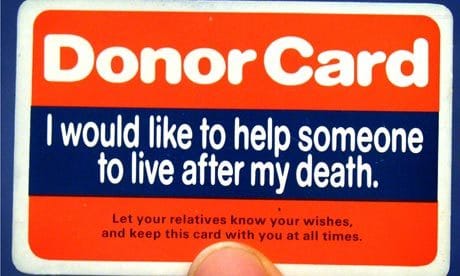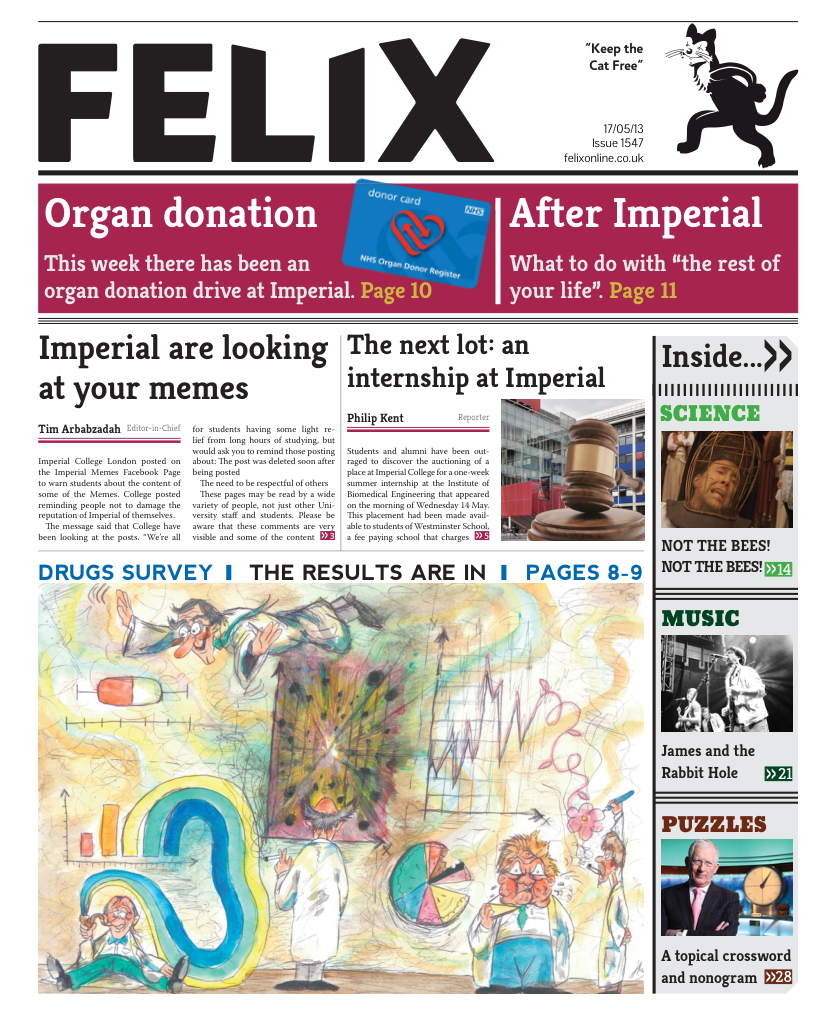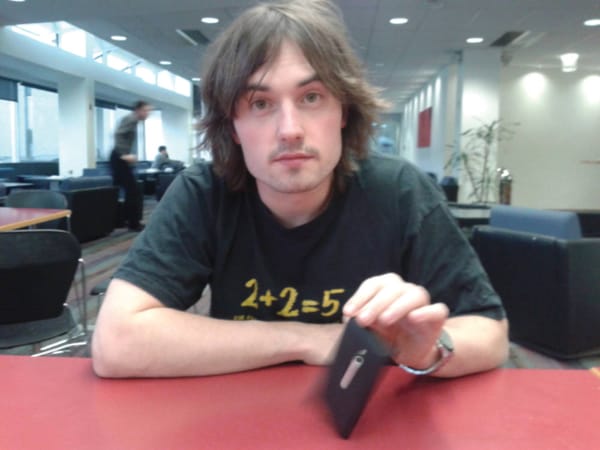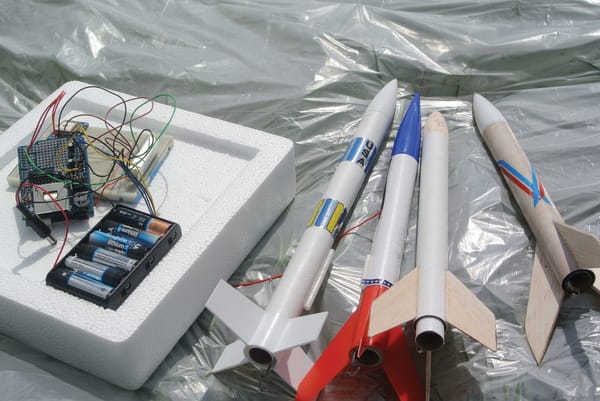Organ donor drive at Imperial
Rebekah Judge tries to convince you to confront your own mortality and become an organ donor

Organ donation can be a taboo topic, as thinking about it requires us to confront our own mortality; something most of us would prefer not to do. This taboo needs to be tackled, as the mismatch between the number of people needing a transplant, and those willing to donate their organs, is vast. More than 10,000 people in the UK are currently in need of a transplant, and of these, 1000 die needlessly each year whilst on the waiting list. That’s three people a day dying because they do not receive an organ in time.
I’m sure most of you are aware of the theory behind organ transplantation, however taking a moment to run through the basic procedure involved seems sensible. Organ transplantation is required when a person loses function of one or more of their organs. A replacement organ may be required in order to maintain a good quality of life, or even in order for them to stay alive. They could potentially receive an organ transplant in one of two ways. A healthy person may choose to donate a non-vital organ (for instance, a kidney) to a friend, a member of their family or even a stranger. Alternatively, they could receive an organ from someone who has chosen to donate their organs in the event of their death. In this case, the donor’s organs are allocated to people on the organ transplant list; a national register of people needing an organ transplant.
Organ transplantation has the potential to save and transform the lives of individuals and their families, a number of whom have suffered for many years with a poor quality of life. Unfortunately, due to the shortage of organ donors, the full potential of organ donation to change lives is not being fulfilled. Whilst almost all of us would take an organ if we needed one, only 30% of us are registered organ donors.
As students at a renowned scientific institution, we are being equipped with skills which have the potential to improve the lives of people around the world. But have you considered the simple act of signing up to the organ donation register; something that if we each do individually, collectively has the potential to put an end to the unnecessary suffering and deaths of thousands of people?
Organ transplantation has the potential to save and transform the lives of individuals and their families
So why not take action? Think about organ donation, consider signing up, and become part of a lifesaving movement. Because you never know, you yourself may one day rely on the organ of a total stranger.
This article is on behalf of The Organ Donor Drive by Imperial Hub. We want to increase understanding and awareness of organ donation and also encourage students to register on the NHS organ donor list. We will be holding lectures, discussions and running stalls from the 13th -20th of May- please get involved and find out more.








